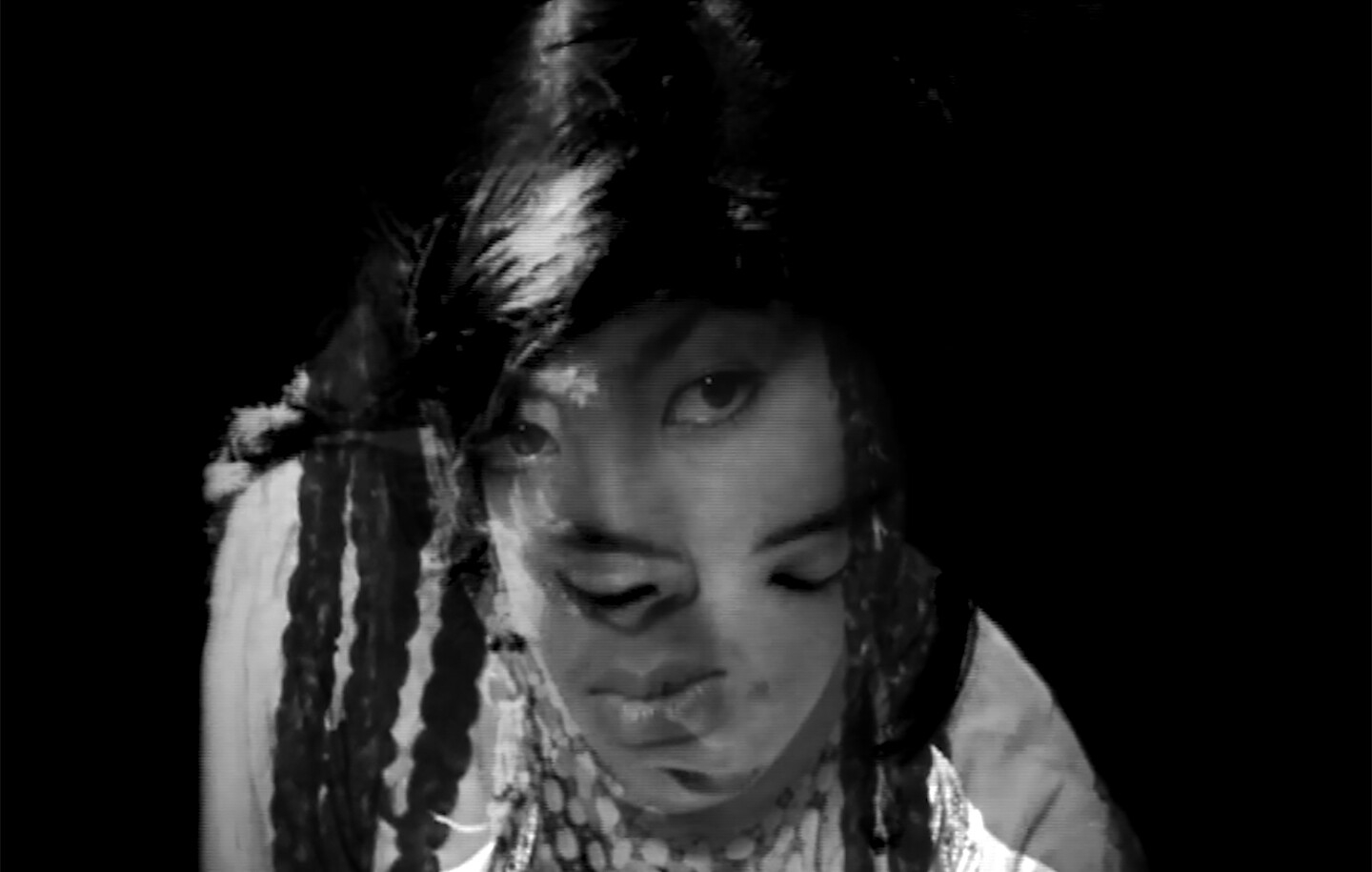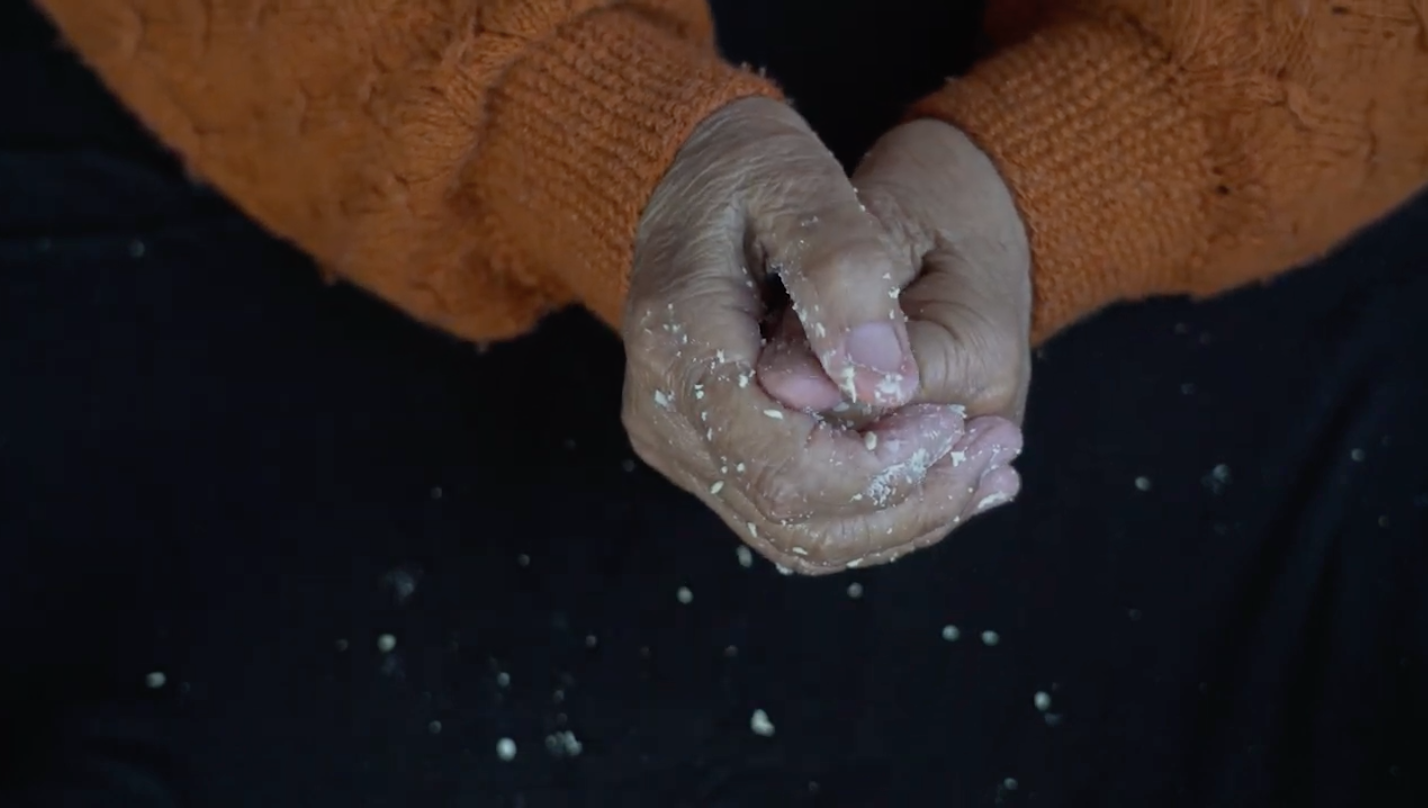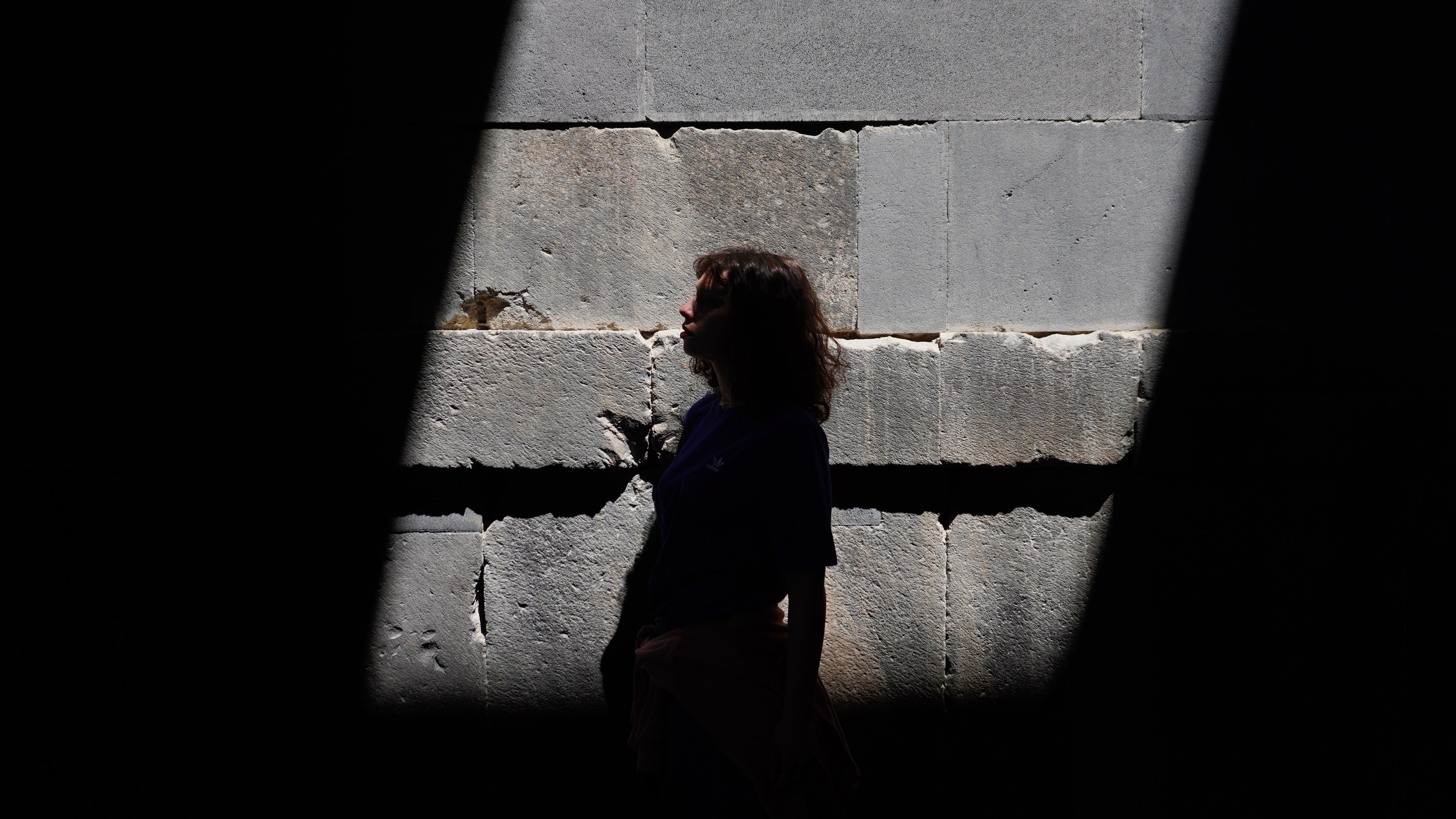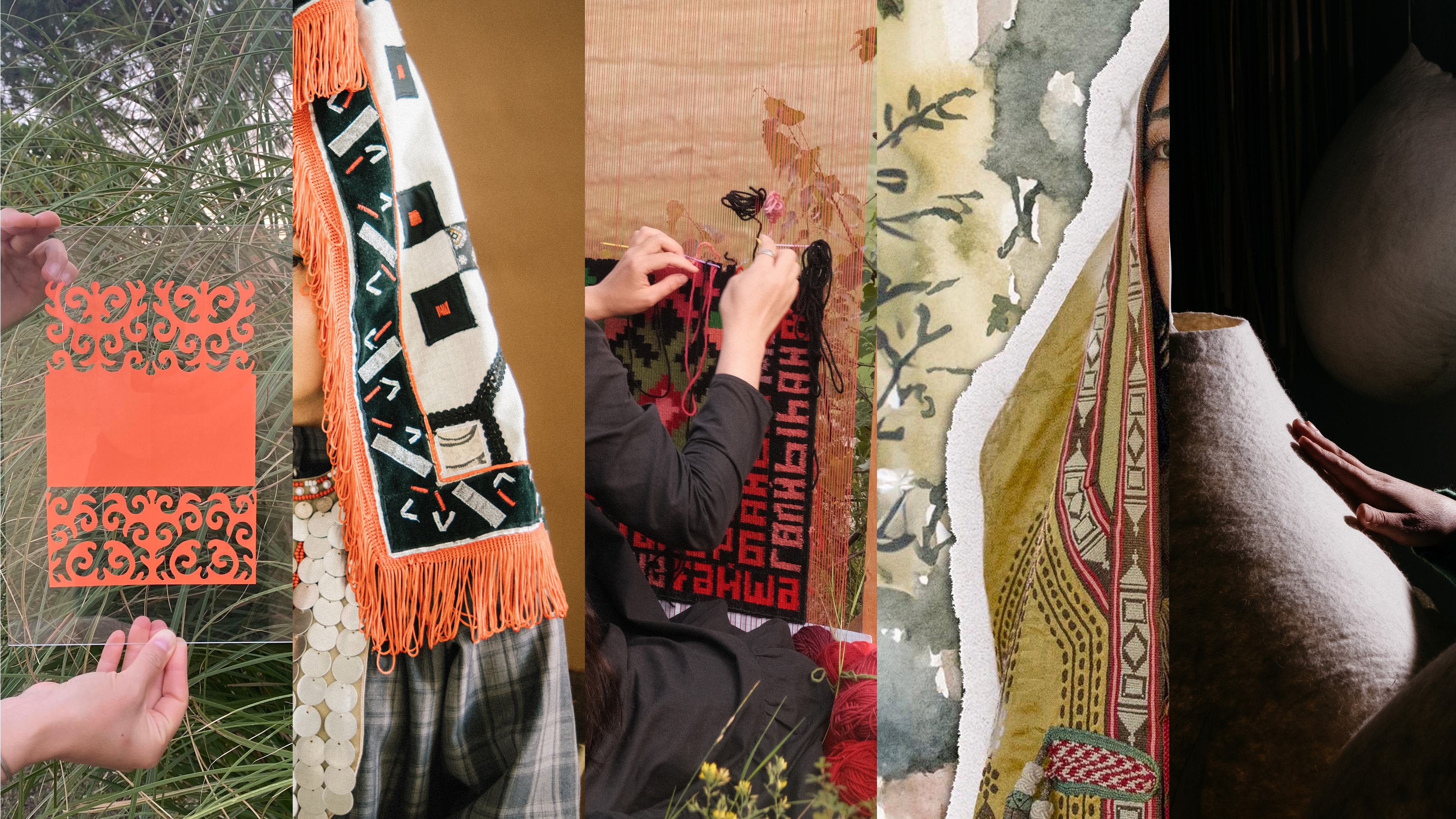Her Right
Season
24 May – 30 November 2024
Various locations
Curator: League of Tenders

In this season, League of Tenders followed the concepts of Madina Tlostanova, a decolonial thinker of trans-diasporic Circassian-Uzbek origin, as presented in her book Gender Epistemologies and Eurasian Borderlands. Describing how the colonial regime produced the western “privilege of formulating high theory while the rest had to apply it,” she emphasized “the necessity of formulating a new pluri-versal (as opposed to uni-versal) theory, which would help establish dialogue and volatile connections between gender discourses in various locales.”
The first season took its title — Her Right — from a film by Saodat Ismailova, which opened the screening series Her Gaze: Moving Image from Central Asia as a part of this season and recalls the political campaign titled Hujum (Attack) undertaken by the Soviet Communist Party to emancipate and unveil women in Uzbekistan. This campaign, co-designed by Zhenotdel — the women’s department of the Central Committee of the Communist Party of the Soviet Union (1919–1930), was executed with violent authoritarianism, silencing Indigenous women and erasing their agency, despite manifesting the rhetoric of liberation. Zhenotel was co-founded and led by Alexandra Kollontai, a prominent figure in Western feminism. Recently, her legacy has been rediscovered and revisited by many artists and curators with books published and exhibitions held. However, this wide attention, emphasizing her role in creating platforms for women to engage in political and social life as well as her theoretical work on family and love, lacks the reflection on her support of Soviet colonial politics against Indigenous peoples.
Soviet policies are not unique and Hujum echoes the actions of the French colonial government in Algeria, where a similar agenda of unveiling and emancipation was imposed on Muslim women. “And indeed although the status and rights of Algerian women became part of the colonialist discourse, in practice, little was done to improve their condition,” as researcher Ryme Seferdjeli highlighted in her text The Veil in Colonial Algeria: the Politics of Unveiling Women.
Françoise Vergès, a political scientist and activist raised in Algeria, coined the term ‘civilisational feminism’ to describe the legacy of such colonial politics which still persists. Coupling the language of women’s rights with notions of white supremacy, such liberators successfully ignore race and colonial contexts. Today, such civilizational feminist agendas continue to manifest in various guises, from prescriptive norms imposed on women globally to the justification of military invasions under the banner of women’s and queer liberation.
Challenging these western and Soviet feminist paradigms, League of Tenders articulates a pluriversal vision of women’s rights. It invited feminist artists, curators, musicians, and collectives from Armenia, Bashqortostan, Kabardino-Balkaria, Kazakhstan, Kyrgyzstan, Tajikistan, Udmurtia, Uzbekistan, and other locales to share their perspectives, often underrepresented on a global scale.
The first season unfolded through three events — Her Gaze, Her Labor, and Her Voice. Each event proposed a decolonial and non-western perspective on equity and feminism, family and home, politics and history, art and work, knowledge production, and transmission.
Her Gaze: Moving Image from Central Asia, co-curated with Dilda Ramazan and DAVRA Collective, brought together films made by Central Asian women artists, foregrounding the lived experiences of women as mothers, daughters, and (broadly) sisters — within domestic spaces, in the workplace, in their struggles for emancipation, and in making other women visible.
Her Labor united female artists involved in manual and craft practices such as weaving and embroidery. During four non-public meetings, League of Tenders mediated the discussion around artistic methods of dealing with the pain of the past, the privilege of intergenerational dialogue, the stigma of ‘decorative’, ‘touristic’ and ‘exotic’ which surrounds this labor and the ways of imagining different futures together.
Her Voice: Behind Armenian Lullabies featured sound artist Lucia Kagramanyan, who delves into the power of women’s voices as a tool of knowledge production and intergenerational transmission, drawing on the rich oral non-institutionalized musical tradition of Armenian lullabies.
Bringing together these practitioners and thinkers and organizing events across Central Asia and Armenia, in Europe and online, League of Tenders aimed to promote decolonial feminist solidarities across various contexts connected by common histories of oppression as well as today’s struggles and experiences of healing. Spending time together, listening to each other's stories and thinking out loud collectively, League of Tenders was looking for ways to bring justice and reimagine other possible futures.
Vleeshal’s International Nomadic Program 2024-2025 is curated by the curatorial duo League of Tenders and entitled Repetition is a Form of Changing. It consists of four seasons. For the first season entitled Her Right, League of Tenders revisited the immersive exhibition International Feminist Art that was on display in Vleeshal in 1980 and which, despite proclaiming to present artists who ‘emerged in many places around the world’, focused on the western art scene.
Developed for this project
Her Gaze: Moving Image from Central Asia
Aïda Adilbek, Medina Bazarğali, Saodat Ismailova, Madina Joldybek, Nazira Karimi, Daria Kim, Zumrad Mirzalieva
24 May – 30 September 2024

Her Voice: Behind Armenian Lullabies
Lucia Kagramanyan
5 November 2024, 5:30 – 7 pm

Her Labor
Milyausha Abaydullina, Aziza Kadyri, Aisha Jandosova, Milana Khalilova, Darali Leli
7 August 2023 – 28 August 2024

Persons
Series
Repetition is a Form of Changing is a program developed by the new curators for Vleeshal’s Nomadic Program 2024-2025: Maria Sarycheva and Elena Ishchenko who form the curatorial duo League of Tenders.
League of Tenders envisions Repetition is a Form of Changing as a collective attempt at rehearsing and practicing non-imperial and anti-colonial ideals. The program consists of Four Seasons. For each Season, League of Tenders will invite non-Western artists, musicians, filmmakers, and choreographers to approach and repeat one of Vleeshal’s previous projects and question the (western) knowledge behind feminism, language, ecology, and care. They will revisit these concepts and discuss them from their own perspectives. By placing these concepts in underrepresented international art contexts, League of Tenders proposes new perspectives and enacts the necessary process of changing. This collective rehearsal will be approached from the perspectives of Indigenous people reconnecting with their cultures, colonized people resisting colonial oppression, and displaced individuals searching for a home beyond their homeland. Repetition is a Form of Changing will extend beyond state borders, encompassing localities such as Idel-Ural, North and South Caucasus, and Central and Northern Asia. Various independent initiatives and collectives based in these locations will join League of Tenders during the events of Vleeshal’s Nomadic Program 2024-2025 in order to spark and support translocal networks of solidarity.
League of Tenders is an imaginary organization and curatorial duo established in 2018 by curators, researchers, and friends Elena Ishchenko and Maria Sarycheva aimed at cultivating collectivities and fostering the affective dynamics within them. Over time, League of Tenders has focused on disability representation, overcoming the alienation of everyday labor, practices of care, support, and friendship in the age of disasters. Their projects disrupt traditional forms, seeking to place concepts, people, and artworks in unexpected contexts and inviting them to engage in dialogue. The duo has been appointed as Vleeshal's nomadic curators for Vleeshal's Nomadic Program 2024-2025.
Elena Ishchenko is a curator, researcher and, activist. In her practice, Elena Ishchenko is nurturing a decolonial approach to curating and knowledge production, while addressing power relations inherited from colonial policies, particularly within the russian* context. She has worked as a curator at the Typography Center for Contemporary Art (Krasnodar, russia), a researcher at the Garage Museum (Moscow, russia), and has developed exhibitions, educational initiatives, workshops, and other projects in russia, Germany, Armenia, Switzerland, among others. Her recent projects include Өмә (nGbK, Kunstraum Kreuzberg/Bethanien, Berlin, 2023), an exhibition that represented the complexity of russia as a colonial realm through stories of artists of Indigenous, migrant, and racialized backgrounds, and Translocal Dialogues (online, 2022), which sought to weave solidarity networks by inviting cultural workers from various contexts to share their experiences, thoughts and feelings on wars, decolonial possibilities, forced migration, and state violence.
Elena is based in Cologne, Germany.
Maria Sarycheva was born in Ufa, Bashqortostan. From 2012 until 2023, she worked independently as a curator and educator in various regions of russia. In 2015, she initiated the Department of Inclusive Programs at the Garage Museum of Contemporary Art. In 2019, she established the Department of Access and Inclusion at the State Tretyakov Gallery and served as its Head until March 2023. Besides dealing with architectural barriers, she was also responsible for the accessibility of museum content and collection for blind people and people with low vision; D/deaf and hard of hearing community; and for visitors with diverse developmental and learning disabilities.
Currently, Maria lives as a nomad, wandering somewhere between Berlin and Bashqortostan. Her research interests include care, feminist theory and practice, and disability history.
*League of Tenders uses “russia” and “russian” in lowercase to condemn the war against Ukraine unleashed by russia and its policy in general, and to express solidarity with Ukrainians and the participants of decolonial movements.